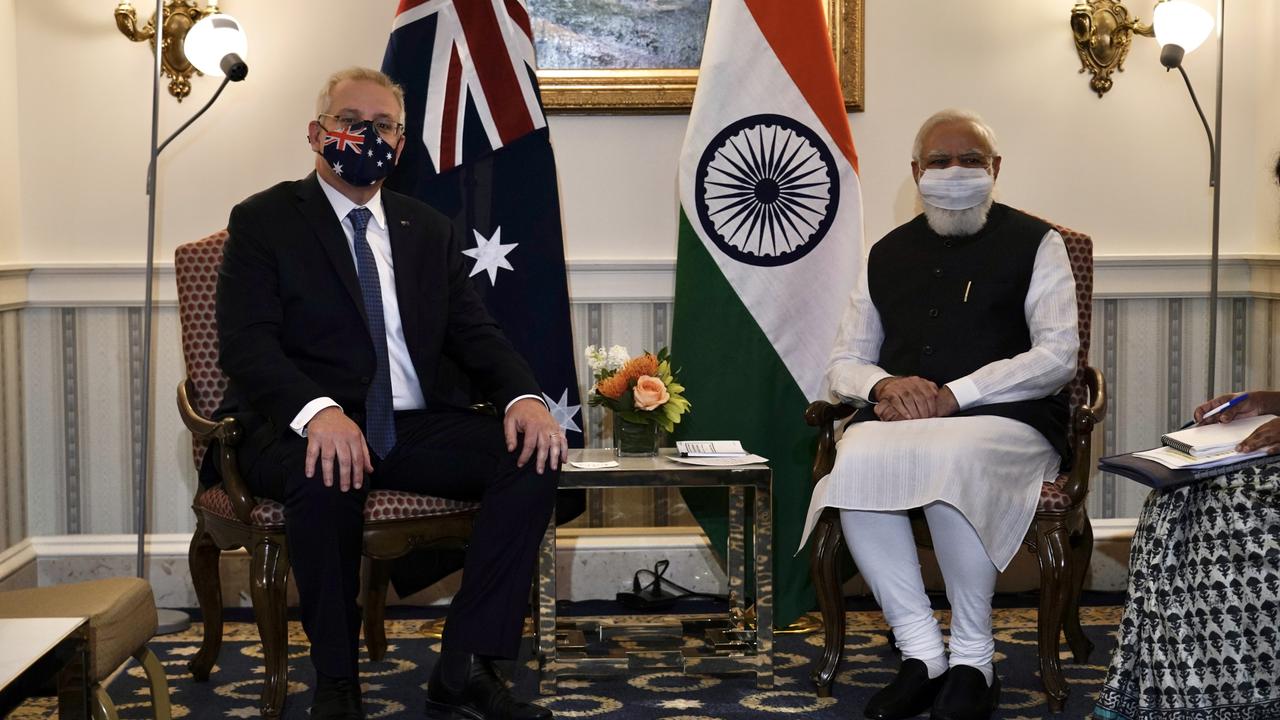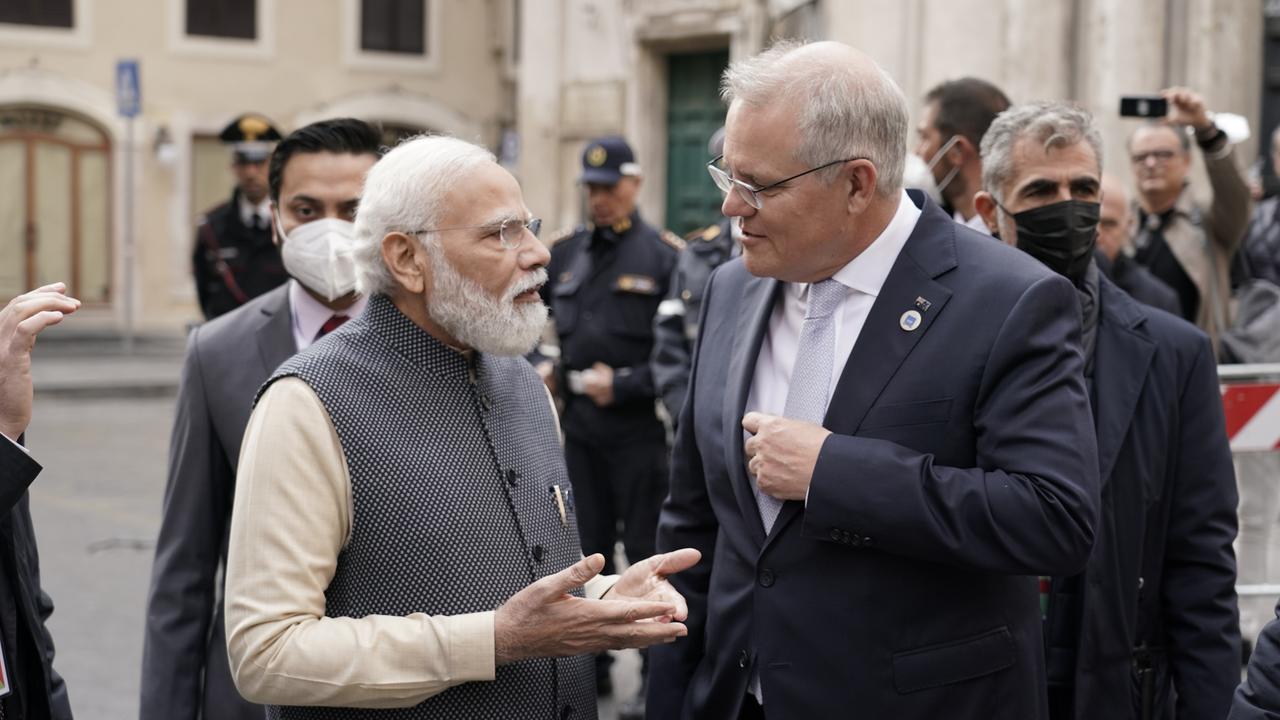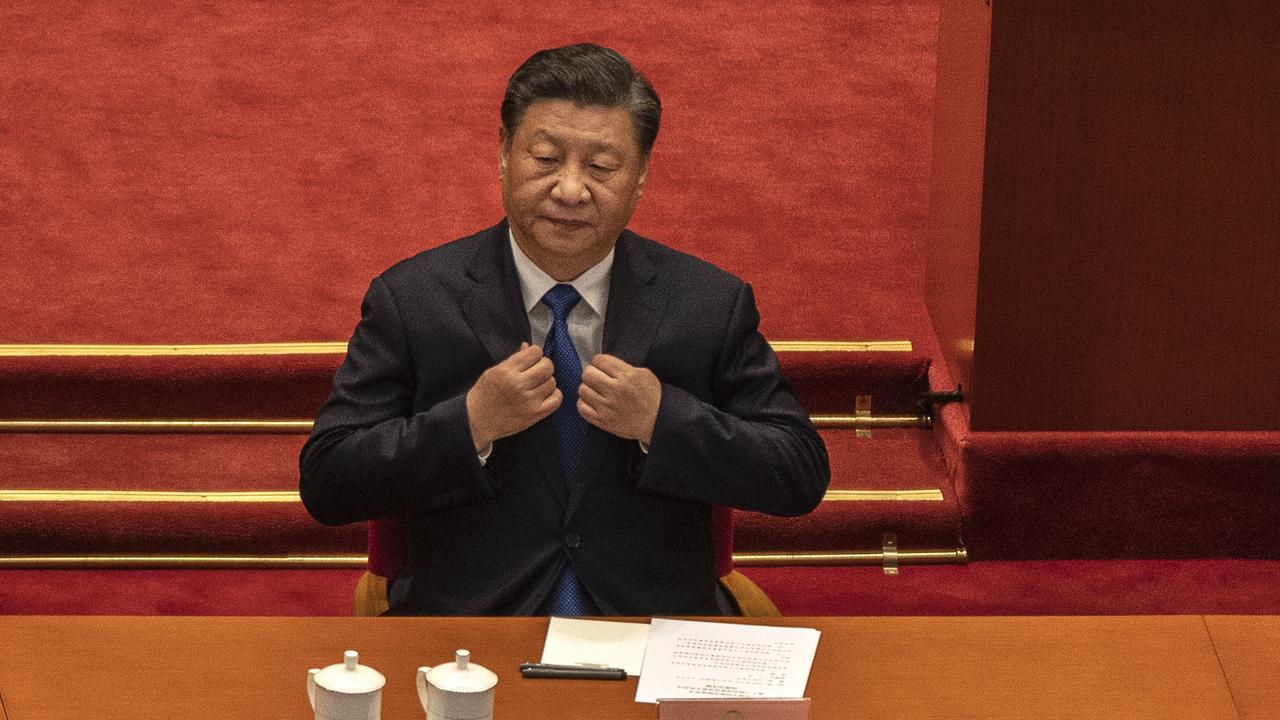Australia’s new slap in the face to China with ‘historic’ trade agreement with India
Canberra and New Delhi are expected to sign a free-trade agreement that will boost exports from Australia to India by at least $45 billion.

Australia and India will sign a historic trade deal this weekend that will come as an almighty slap in the face to China.
Canberra and New Delhi are expected to put pen to paper on a free-trade agreement on Saturday that will boost exports from Australia to India by at least $45 billion by 2035.
The move, which will remove or massively reduce tariffs on an array of Australian goods, comes as both nations seek to reduce their dependence on the Chinese market.
Details from the agreement directly counteract some of Beijing’s measures against Australia, with tariffs eased on wine and coal - two industries which have been targeted by Chinese trade sanctions.
Trade Minister Dan Tehan told The Australian that the Australia-India Economic Cooperation and Trade Agreement would “turbocharge our close, longstanding and highly complementary economic relationship”.

The working holiday visa programme, traditionally used by British and European backpackers, will also be opened to 1,000 Indians a year.
The deal will be a huge boost to Australian lamb exporters. Twenty per cent of India’s imported sheep meat comes from Australia and tariffs of 30 per cent will be removed under the agreement.
Tariffs on wine will reduce over the next 10 years, while lobster tariffs will be eliminated immediately.
The deal does, however, come at an awkward time diplomatically.
India has resisted pleas from the West to stop importing Russian oil in response to Moscow’s invasion of Ukraine.

While the US has banned imports and the EU and UK have pledged to reduce their reliance on Russia, India has bought at least 13 million barrels since the invasion began.
The new deal will not go down well in Beijing.
Since Scott Morrison called for an investigation into the origin of the coronavirus pandemic back in April 2020, President Xi’s government has brought in a series of trade sanctions against Australia.
It started out with Australian cotton and coal being informally banned, but before long sugar, barley, wine, copper and lobsters were added to the list.
Months later, six major meat exporters were banned from sending beef to China. Then Beijing slapped extraordinarily high tariffs on Australian wine - essentially ending exports to the country.





